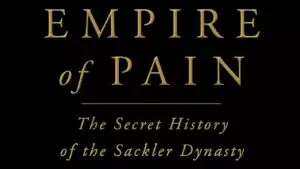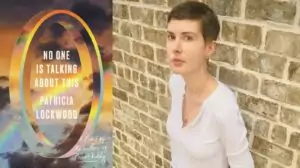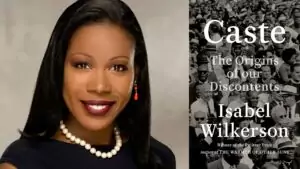The following book review example can serve as a guide for students trying to find inspiration when writing an assignment.

✅ AI Essay Writer ✅ AI Detector ✅ Plagchecker ✅ Paraphraser
✅ Summarizer ✅ Citation Generator
Opening the pages of Walter Isaacson’s “The Code Breaker,” I felt as though I was embarking on a thrilling journey into the frontiers of science. Isaacson, known for his biographies of influential figures like Steve Jobs and Leonardo da Vinci, brings us a fascinating tale of Jennifer Doudna and the groundbreaking world of gene editing.
The book captures the life and work of Jennifer Doudna, a biochemist who played a pivotal role in the development of CRISPR, a revolutionary gene-editing technology. CRISPR holds the potential to rewrite the very code of life, offering solutions to genetic disorders but also raising ethical dilemmas about the boundaries of scientific intervention.
Isaacson’s narrative style is both engaging and straightforward, making the complex realm of molecular biology accessible even for a B2 English reader. He breaks down intricate scientific concepts into bite-sized, comprehensible pieces, ensuring that the reader isn’t lost in jargon but is instead captivated by the story’s essence.
The book isn’t just a biography; it’s also a chronicle of the race to understand and harness the power of gene editing. Through interviews, personal anecdotes, and historical accounts, Isaacson paints a vivid picture of the world of competitive research, collaborations, and the exhilaration of scientific discovery.
Jennifer Doudna is portrayed as a multi-faceted figure. Beyond her scientific achievements, we get a glimpse of her personal challenges, aspirations, and the ethical quandaries she grapples with in the face of such a transformative discovery. The inclusion of other key players in the CRISPR saga ensures a holistic understanding of the field’s development and the interplay of personalities behind the scenes.
If I were to offer an opinion, it would be to praise Isaacson’s balanced approach. While celebrating the potential of CRISPR, he doesn’t shy away from discussing the profound ethical issues it brings to the fore. The possibility of editing genes to prevent diseases versus the concerns of creating “designer babies” and the implications of changing the human genome are presented in a thought-provoking manner.
However, given the vastness of the topic, some readers might find certain sections dense or detailed. It’s a testament to Isaacson’s skill, though, that even in these segments, he maintains a narrative thread that keeps the reader anchored and invested.
In conclusion, “The Code Breaker” is more than just a story about a scientific discovery. It’s a reflection on the nature of innovation, the responsibilities that come with unchecked power, and the eternal dance between science and ethics. Walter Isaacson has delivered a masterfully written account that bridges the gap between the world of science and the everyday reader. I closed the book with a profound sense of awe for the pioneers like Doudna who push the boundaries of what’s possible and a deep contemplation of the future trajectory of the human race. For anyone curious about the cutting edge of science and the moral questions it prompts, this book is an enlightening read.
Follow us on Reddit for more insights and updates.





Comments (0)
Welcome to A*Help comments!
We’re all about debate and discussion at A*Help.
We value the diverse opinions of users, so you may find points of view that you don’t agree with. And that’s cool. However, there are certain things we’re not OK with: attempts to manipulate our data in any way, for example, or the posting of discriminative, offensive, hateful, or disparaging material.